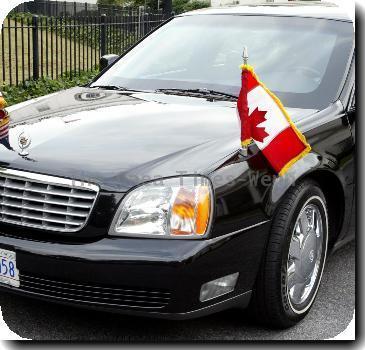EU nations to commit $3 billion a year to global climate fund, seek to rescue ‘green’ image
By Aoife White, APFriday, December 11, 2009
EU nations to commit $3 billion to climate fund
BRUSSELS — EU nations will commit more than euro2 billion ($3 billion) a year to help poorer countries combat global warming, the leaders of Britain and France said Friday as they sought to bolster climate talks in Copenhagen.
Britain’s Gordon Brown and France’s Nicolas Sarkozy said their two countries would contribute most of that sum and were trying to get smaller members of the 27-state European Union to pitch in more at an EU summit in Brussels ending Friday.
EU leaders failed Thursday to come up with a firm figure for the fund, an embarrassing setback for a bloc that was long at the forefront of the fight against global warming. Smaller eastern EU states are reluctant to donate as they struggle with government debt and rising unemployment in the wake of the financial crisis.
The climate money is meant to go toward a global $10 billion annual fund for short-term help to poor countries, particularly in Africa, adapt to the effects of global warming before a new climate treaty being negotiated in Copenhagen comes into force in 2012.
“There are few moments in history when nations are summoned to common decisions that will reshape the lives of men and women potentially for generations to come,” Brown said.
He said the Copenhagen talks should pave the way to an ambitious and legally binding global treaty within six months.
The money would help poorer countries build coastal protection, modify or shift crops threatened by drought, build water supplies and irrigation systems, preserve forests, improve health care to deal with diseases spread by warming, and move from fossil fuel to low-carbon energy systems, such as solar and wind power.
Brown said Britain had increased earlier pledges to 1.2 billion pounds ($1.95 billion) over the next three years, but left the possibility open of increasing that to 1.5 billion pounds ($2.44 billion) if need be at the climate change talks next week. France will contribute euro1.26 billion ($1.85 billion) over the next three years but it was unclear whether it could go higher at Copenhagen.
Germany, the most powerful economy in the EU, has not given any specific figure but is expected to pay about 20 percent of the EU total.
The $10 billion-a-year in short-term funds pales in comparison to the huge stimulus packages and bank bailouts paid by many governments in the wake of the global financial meltdown. But those economic woes are a big reason why many in Europe are reluctant to pay in even to a small global climate fund.
Brown said Europe will also pay its “fair share” of the much heavier long-term costs, estimated up to $100 billion a year after 2020.
Brown and Sarkozy also said they were hoping to get all EU members to agree to reducing carbon emissions by 30 percent from 1990 levels by 2020.
Two years ago, the EU was ahead of the pack when it pledged to cut 20 percent of emissions from 1990 levels by 2020 and to increase that to 30 percent if other big polluters made similar promises. Japan and Russia have now outpaced Europe with 25 percent cuts. The U.S. is promising a 3 percent reduction from 1990 levels.
At Thursday’s talks, 17 of the EU’s 27 members came up with offers of money for the short-term fund but came up short of the targets leaders were seeking. Activists accused EU leaders of ceding their leadership role.
On Friday, the leaders will also discuss the West’s nuclear standoff with Iran and Tehran’s violent suppression of pro-democracy protests, and pledge support for President Barack Obama’s plans to send more troops to Afghanistan.
____
AP writers Raf Casert, Mike Corder and Barbara Schaeder contributed to this report.
Tags: Barack Obama, Belgium, Brussels, Climate, Copenhagen, Denmark, Environmental Concerns, Europe, France, North America, Summits, United States, Western Europe

